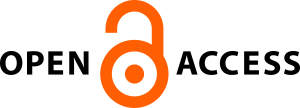Analysis and Simulation of Proportional Derivative and Proportional Integral Derivative Control Systems Using Xcos Scilab
DOI:
https://doi.org/10.32734/jotp.v3i1.5544Keywords:
P control, PD, PID, PID tuning, Xcos Scilab, Zieglar-NicholsAbstract
PID (Proportional Integral Derivative) control is a popular control in the industry and aims to improve the performance of a system. This control has controlling parameters, namely Kp, Ki, and Kd which will have a control effect on the overall system response. In this research, P, PD, and PID control simulations with the transfer function of the mass-damper spring as a plant using Xcos Scilab. The method used is the trial and error method by setting and varying the values of the control constants Kp, Ki, and Kd to produce the desired system response. The value adjustment of system control parameters is carried out with several variations, namely Kp control variation, Kp variation to constant Kd, Kd variation to constant Kp, Kp variation to Ki, constant Kd, variation of Ki to Kp, constant Kd and variation of Kd to Kp, Ki constant. The second method is automatic tuning which is done through mathematical calculations to obtain PID control constants, namely Zieglar Nichols PID tuning with the oscillation method. From the system simulation results, the best parameter is obtained through the Zieglar Nichols PID tuning process based on the results of the transient response analysis, namely when the proportional gain value (Kp) is 50. The system performance characteristics produced in the tuning process are 3.994 seconds of settling time at 2.36 seconds research time. resulting in a maximum overshoot value of 3.6% and a peaktime value of 3.994 seconds
Downloads
Downloads
Published
Issue
Section
License
Copyright (c) 2021 Journal of Technomaterial Physics

This work is licensed under a Creative Commons Attribution-ShareAlike 4.0 International License.












